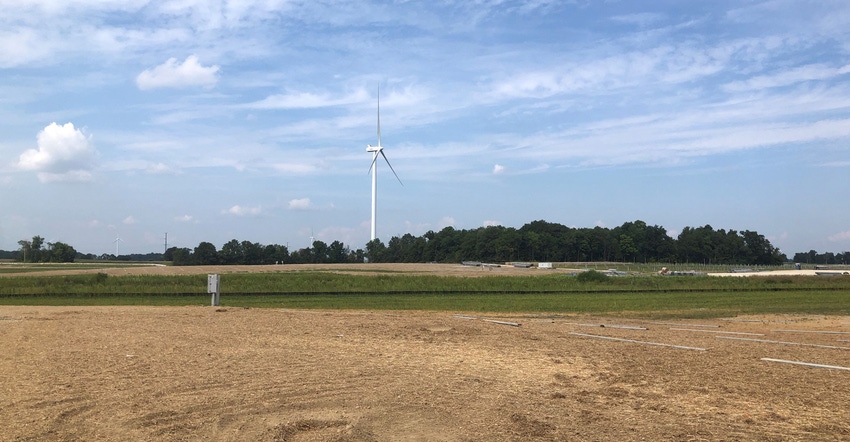January 21, 2022

My wife and I own 600 acres, and we’ve been approached to lease it for a solar farm. The annual rent makes it hard to pass up. However, we’re concerned about our tenant, who has farmed the land for 23 years. It would leave him with less than 2,000 acres. Is there some way we can help our tenant? The project isn’t approved yet.
The Profit Planners panel includes David Erickson, farmer, Altona, Ill.: Mark Evans, Purdue University Extension educator, Putnam County, Ind.: Jim Luzar, landowner and retired Purdue Extension educator, Greencastle, Ind.; and Steve Myers, farm manager with Busey Ag Resources, LeRoy, Ill.
Erickson: First, seek legal advice with experience for long-term leasing of farmland for similar projects. If this property is prime farmland, think about what you’re doing to this property over a long time basis. There is only so much prime farmland in the world, but plenty of places to put solar panels besides on prime farmland. I also don’t see any way your tenant can participate in this endeavor. If you want to help your tenant, buy some additional land for him to rent as farmland.
Evans: Concern like this for a tenant shows considerable loyalty, which I respect. You must be very careful in these lease situations that you have all the details, including an exit plan and clearly stated processes. In recent years, there has been more care to not completely make a land area permanently unfarmable with stone, concrete and disturbance. In fact, areas like this may be able to receive additional funds when used for habitat or grazing situations. Discuss such opportunities with your tenant, and perhaps there can be payment or revenue generation for the tenant working in pairing crop or other alternative ag practices with solar fields.
Luzar: The most important thing you can provide to your tenant follows the golden rule. How would you desire to be treated if the shoe were on the other foot? If I were your tenant, I would appreciate some communication regarding your plans. The solar project is still to be evaluated, but letting your tenant know you are contemplating it will allow him to start thinking about adjustments, if the project goes through.
If the tenant has made improvements in the land and has not accrued full benefit, compensation for the cost not recouped by the tenant would be a great gesture, assuming this is not stipulated in the lease.
Stop wondering what kind of impact the solar project may have on the tenant’s business. If you provide forthright communication in as timely a manner as possible, that will assist the tenant in planning for the future.
Myers: While I appreciate your concern regarding your farm operator, this is a decision that has some, but little, to do with your farmer. This is a long-term decision that perhaps you might visit with, among others, your grower, to get their take on the question. Take your time, gather information, bounce ideas and then gather more information. If in real doubt, you may perhaps only put a portion of your acreage in development. If wonderfully lucrative, perhaps you can use those rental proceeds to purchase more acreage. Any other compensation to the grower is by your grace.
Read more about:
SolarYou May Also Like




